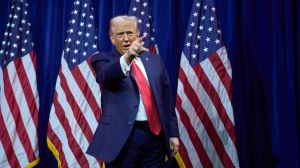Periscope on Pakistan
The economics of goodwillPakistan has been teetering on the brink of financial default for years because our foreign exchange earnings hav...

The economics of goodwill
Pakistan has been teetering on the brink of financial default for years because our foreign exchange earnings have always been less than our foreign exchange expenditures. But no big deal was made of it because our international goodwill was sufficient to enable us to borrow afresh. In 1998, however, our goodwill ran out when we tested the nuclear bomb and alienated the international community. Faced with economic sanctions, we stumbled headlong into potential financial default. Fortunately, the international community allowed us to reschedule over US 5 billion in debt due 1999-2001. It did so because it was persuaded we had been pushed into n-testing by India and because we promised to address some of its outstanding concerns. How do we fare on all these fronts today? Rather precariously, we fear.
The balance of payments gap is threatening to hit US 6 billion in financial year 2000. Out of this, we have already rescheduled US 2.5 billion, leaving US 3.5 billion to be paid. In FY 2001, after the 1999 rescheduling has run out of steam, this net gap will have risen to about US 5 billion. Where are we going to find the money to close these gaps? Privatisation is the answer, we are told, surely we can raise at least US 20 billion by selling the family silver. Rubbish. In the current circumstances in which leading domestic businessmen are either being put behind bars or are emigrating in the droves, it is wishful thinking to imagine that foreigners will be lining up to grab the goodies. Clearly, the goodwill of the international community in terms of fresh economic aid to tide us over our restructuring problems will be critical. And if this goodwill is not forthcoming, we will come face to face with financial default and everything that it entails.
What is the way out?
World cannot go to hell We could, of course, tell the world that we are unable to pay our debts and it can go to hell. For various reasons, some people in this country actually advocate this route and are prepared to pay the price. But most would like to remain in the global village while restructuring our economy in such a way that economic dependency becomes a thing of the past and healthy balance of payment surpluses a matter of business as usual. How do we bring that? If Mr Shaukat Aziz is to go down in Pakistani history as the quot;economic manquot;, he must fight to get some medium-term economic quot;spacequot; in which to set the economy right on its long-term path.
At the very least, he will require an international debt write-off or long-term rescheduling of another US 10 billion or so in the next couple of years in order to have elbow room to revamp the economy. How will he get this space? This space can only be made available by our national security establishment on the basis of a review of our foreign policy options. Such a review should enable us to address pressing international concerns like nuclear proliferation, international terrorism and regional peace without jeopardising our national security.
- 01
- 02
- 03
- 04
- 05































